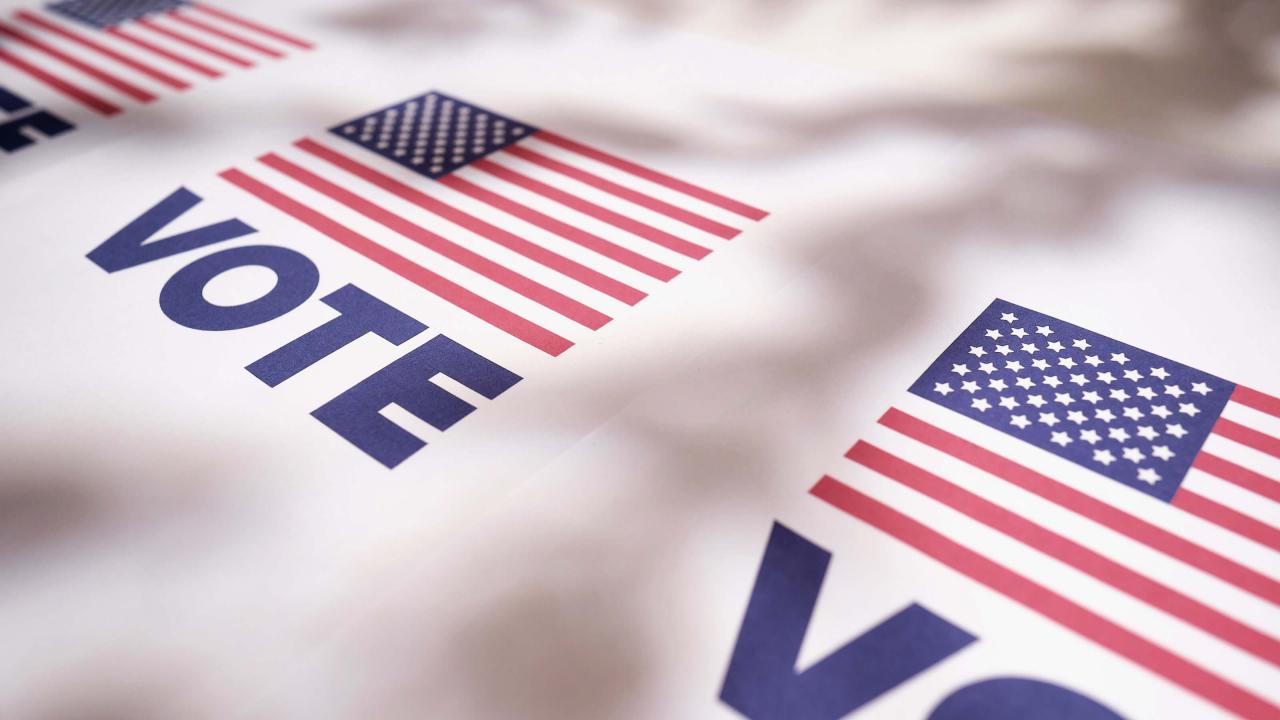 Vote stickers with American flags." width="1280" height="720" />
Vote stickers with American flags." width="1280" height="720" />One of the most important rights of American citizens is the right to vote. Voting gives you the opportunity to help shape your community.
 Vote stickers with American flags." width="1280" height="720" />
Vote stickers with American flags." width="1280" height="720" />
Most states and territories offer flexible options to make voting work for your needs. Here are the options that may be available in your state.
Most people who vote on Election Day must vote in person at a voting location. When you arrive at the voting location, you will see election workers ready to help you. You will vote by selecting your choices on a paper ballot or by using an electronic device.
Find your voting location. The opening and closing times for voting locations vary by jurisdiction. Check with your state or local election office if you have any questions about your voting location.
Some voting locations are open before Election Day. Check if your state or territory allows early in-person voting or check with your state or local election office for early voting dates and rules in your area.
Some states conduct elections entirely by mail. Others allow you to ask for an absentee ballot if you’re unable to vote in person or simply prefer to vote by mail. Each state has its own guidelines, so check to see if you’re eligible to vote by mail in your state.
Learn how your vote affects your community so you can make an informed decision.
Many election offices post sample ballots online. Some also provide information online or by mail about candidates and ballot measures. Check your state or local election website for more information.
Each state and territory sets its own voter ID rules. In most states, you must bring your identification to vote in person and provide ID information when you vote by mail. Check your state’s voter ID requirements.
You can get an ID card at your state motor vehicle office, even if you do not drive. You will need to pay to get an ID card, but there are organizations that may be able to help you with ID-related fees.
You do not need a voter registration card to vote.
If English isn't your primary language and you want to vote in a different language, you can ask for help. Contact your state or local election office to find out what kind of support is available in your language, such as:
If you have a disability, you have a legal right to accessible voting materials, such as ballots in large print or audio formats. If you are voting in person, you also have a right to accessible voting equipment and an accessible voting location.
If your state's election website or voting location is not accessible, you have options to request accessibility accommodations. Reach out to your state or local election office if:
If you believe that you were discriminated against based on a disability while voting, report your experience to the Department of Justice (DOJ).
Learn about the federal laws that protect your ability to vote in the Know Your Rights Voting Guide from the Department of Justice (DOJ). The guide is also available in Spanish.
You can report a complaint to the DOJ if you experience any of the following while exercising your right to vote:
Support your community by becoming a paid poll worker. Poll worker duties are different depending on where you live. Many local election offices have poll workers do tasks such as:
As a poll worker, you will be paid for your time. Pay varies depending on location. Learn more about how to become a poll worker.